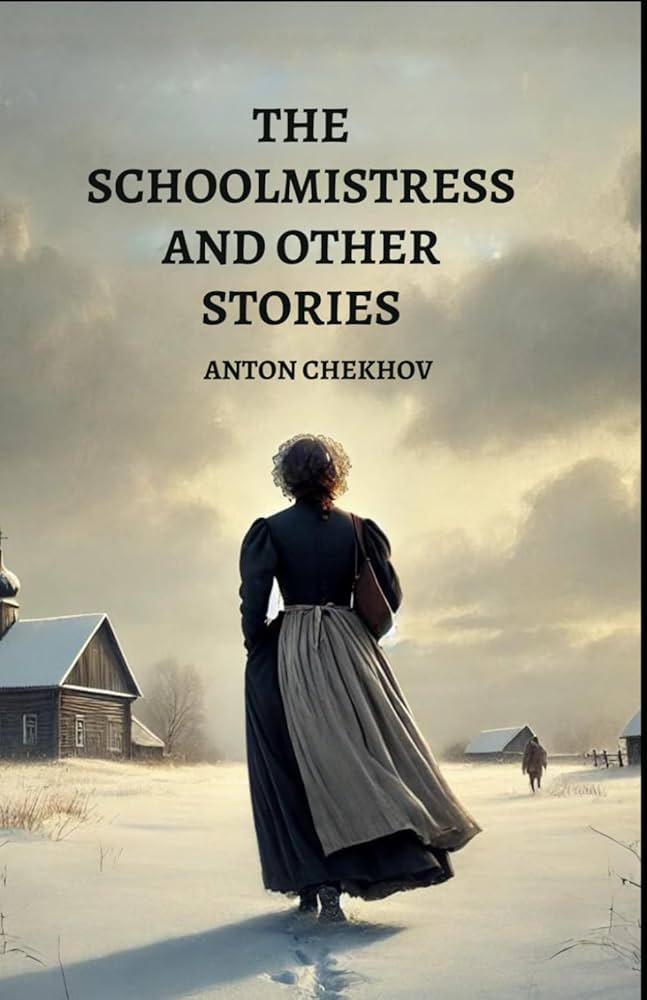A TRANSGRESSION
byA Transgression begins with Collegiate Assessor Miguev caught in the quiet chaos of conscience after a visit from Agnia, the former housemaid with whom he once had an affair. She doesn’t demand affection or recognition—only support for the child she claims is his. Her threat to leave the baby at his doorstep presses against the very wall of Miguev’s carefully constructed life. His respectable marriage, his social position, even his pride, all hang in a delicate balance. That night, when he finds an infant bundled at his door, his first instinct is fear rather than compassion. He does not check the truth or origin—he only sees scandal looming.
With the baby in his arms, Miguev steps into the cold night, not as a father, but as a man trying to outrun his past. Each footstep on the cobbled street echoes with the weight of indecision. As he moves through the sleeping town, his mind flickers between visions of disgrace and flickers of empathy. The child stirs softly, oblivious to the struggle above. Miguev begins to imagine what life would be like for this innocent soul left to the hands of strangers, his own blood unknowingly walking through a life unloved. The fragility of the baby contrasts with the hardness of the decision being made, creating a moment where humanity quietly battles with self-preservation.
At Merchant Myelkin’s home, the silence of the street and the soft breathing of the baby offer Miguev one final pause. He stands there, torn between society’s expectations and the moral obligation he has long tried to suppress. Images of the child’s future—raised without care, judged without protection—flash through his mind. For a brief moment, Miguev isn’t a bureaucrat or a husband or a man of public standing. He’s just a father. The decision comes quietly but clearly. He turns away from the gate and walks back, no longer trying to escape but to atone.
The decision to confess to his wife is not born from bravery, but necessity. Miguev realizes that truth, no matter how difficult, is the only path forward if he is to claim the child and recover any sense of honor. Yet just as he prepares to lay bare his betrayal and accept its consequences, fate interjects. His porter, Yermolay, informs him that the child left on the doorstep belonged not to Agnia but to the washer-woman, Aksinya. The bundle was a temporary placement, not a sign of exposure. Miguev is stunned into silence.
This revelation spares Miguev from scandal but robs him of a moment of potential redemption. The baby he nearly claimed out of duty and guilt is not his, yet the emotions stirred are real and lingering. He returns to the safety of his home, but not to peace. The room where his wife sleeps remains untouched by the night’s drama, but Miguev himself is changed. His conscience, once dulled by fear, has tasted the depth of what could have been a meaningful act of courage.
In Chekhov’s portrayal, the true “transgression” may not lie in Miguev’s initial affair but in his hesitation to face its consequences. The story confronts readers with the idea that moral clarity is often found in the most chaotic moments. Sometimes, it takes an illusion of responsibility to awaken genuine compassion. Though Miguev escapes the immediate burden, he is left haunted by what he failed to do—and what that says about who he is. Redemption is not always a grand act; sometimes, it is the willingness to carry the weight of one’s own truth.
The story reminds us that small decisions can carry immense emotional weight, especially when they touch on identity, duty, and shame. Miguev’s journey is not just a flight from exposure, but a reluctant encounter with conscience. The line between disgrace and decency proves thinner than he ever imagined. What he chooses to do next—beyond the scope of the story—lingers unanswered, a quiet invitation for readers to ask how they themselves would act when faced with such a reckoning.

